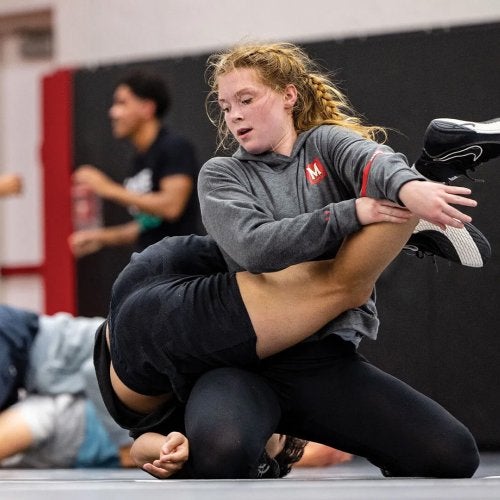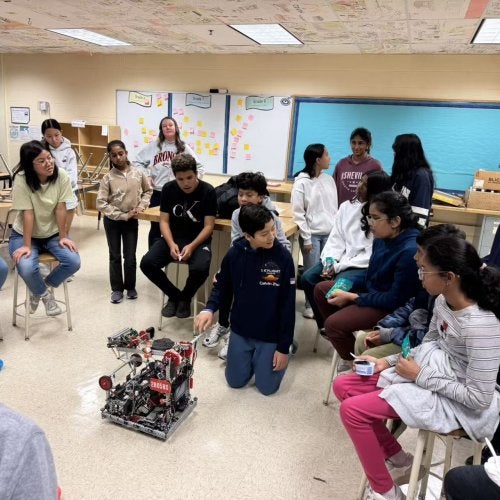COLLEGE PARK, MD (March, 2017) – Kristin Sinclair is a fifth-year doctoral student in the Department of Teaching and Learning, Policy and Leadership, with a specialization in Education Policy. Her research critically examines how teachers, schools, and education writ large reflect, contribute to and challenge social inequalities related to race, class and gender, with a particular eye toward place-based education, a hands-on, experiential approach to teaching and learning that uses the local context as a jumping-off point for teaching topics from a variety of disciplines across the curriculum. Sinclair participated in a research apprenticeship in Prince George’s County Public Schools and has taught undergraduate teacher preparation courses at the University of Maryland. In 2015, she received a summer research fellowship to work on background research for her comprehensive exams and a book chapter, as well as the Outstanding Graduate Student Award in 2015.
Why did you decide to come to the University of Maryland to pursue your doctoral studies?
I was attracted to its location near D.C., and the opportunity to form close relationships with professors. The interdisciplinary nature of the department also appealed to me, as my work straddles policy and curriculum and instruction.
What person or experience has had the greatest impact on your studies so far here at the University of Maryland?
My advisor, Dr. Betty Malen. She is incredibly dedicated to her students and holds them to high standards. She continually challenges me to be a better writer, a more rigorous scholar and a more thoughtful, attentive teacher. She also taught me the important distinction between "worth of work and worth of person"—critiques on your work are necessary acts of kindness that can help you grow as a scholar and a writer.
Additionally, my experience with the research apprenticeship during my first year— both as a student and as a graduate assistant—solidified my love for qualitative research. It was an incredibly unique opportunity to participate in a research project from start to finish. I conducted classroom observations, interviews with principals and teachers in Prince George’s County Public Schools, and I was responsible for one of the four cases in our study. I also had the opportunity to play a major role in writing the final report for the district. Since then, Dr. Malen has supported me as I've presented this research at several conferences and am now working on a paper for a publication.
Also, I had the opportunity to teach a sequence of courses for undergraduate students in the middle school teacher prep program—EDCI424, Equitable Classrooms and EDCI425, Equity and Pedagogy. As brand-new courses, I was able to shape the syllabi and create new assessments. My goal was to create courses that challenged pre-service teachers to critically self-reflect on how privilege, oppression, power, identity, as well as racism, sexism, heterosexism, classism, and other forms of oppression, play out in their own lives, the classroom and the greater context of the U.S. I found this experience to be incredibly challenging—pushing people to confront their own biases is not easy—and incredibly rewarding at the same time.
Could you talk about your time in undergrad and related career or other types of experience?
I was a public policy major at Brown University, and then spent eight years working with students in a variety of settings— I helped run an outdoor after-school counseling program, led expeditionary outdoor trips for middle and high school programs (multi-day, overnight outdoor trips to include activities like backpacking, sea-kayaking and canoeing), got my master’s in school counseling and worked as a school mental health counselor in public schools in and around Boston. I also worked as a teacher and administrator at a study abroad program for U.S. high school students in the Bahamas. Most of my professional work focused on how forces outside of the school walls—places, communities, families and the natural environment—function as a resource for learning opportunities and building students' emotional, physical, and intellectual strengths.
What do you hope to do when you graduate?
I hope to pursue a career in academia. I love teaching and I love doing research, and academia offers the opportunity to do both.


